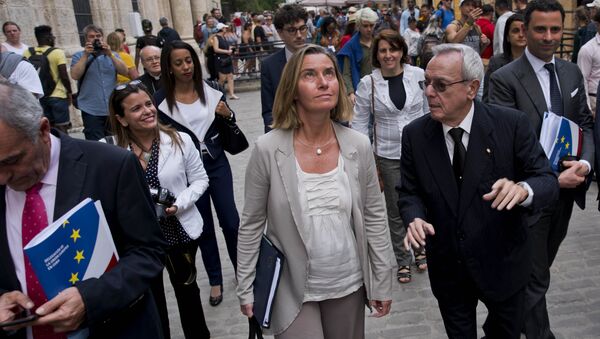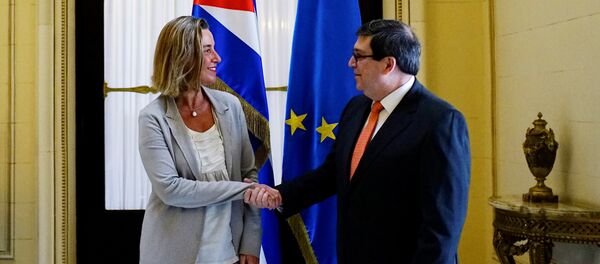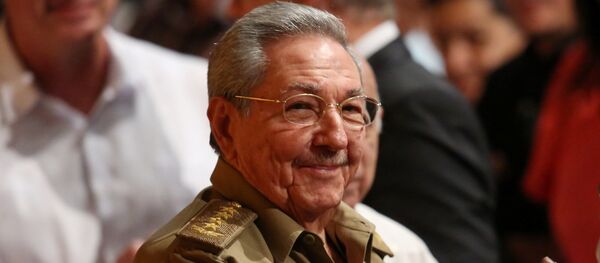Last week, EU foreign policy chief Federica Mogherini visited Cuba and met with President Raul Castro, as part of efforts to strengthen the bloc's ties with Cuba. The two countries have agreed a Political Dialogue and Cooperation Agreement (PDCA), which was provisionally applied in November and comprises three main chapters concerning political dialogue, cooperation and sectoral policy dialogue, and trade.
Speaking to reporters on Thursday, Mogherini described Brussels as a "solid, reliable and predictable partner," which was interpreted as a reference to the unpredictable US President, Donald Trump. She also called the US blockade of Cuba "obsolete" and "illegal."
Sputnik: What is the big difference between the US and the EU stance on Cuba? Do you think that Europe is actually paying more attention to Cuba now that Trump has turned away from the Obama-era policies of greater engagement?
Professor Antonio Moreno: It definitely seems so. I think the Europeans feel like a door is opening in Cuba, given that the US policies are let's say, unpredictable. With respect to Cuba, they were more favorable under Obama, now they are less so under Trump, with all these restrictions and sanctions.
I think that the European Union is now in a situation where, in the context of Trump, Brexit, it's picking trade agreements with several partners. For example, a country like Spain has had many historical relations with Cuba and it seems like a very interesting country to strengthen both political and economic relations. And yes, I think that US-Cuba relations now, in a way, deviate Cuba trade and economic relations more toward the EU.
Professor Antonio Moreno: let me say that I think it can be very beneficial for both sides, because Cuba can also export things to Europe and offer a lot of economic benefits. From the political perspective, it seems that there will be continuity in terms of the political, gradual opening. I think in that respect there will be more economic opening, but also as political relations strengthen, I think that this is also going to be beneficial for the institutions in Cuba.
I think the fact that you have stronger relations between the EU and Cuba and between Cuba and some other countries with, let's say, long-standing democratic traditions, is also going to bring benefits to Cuba.
That seems to be what will happen when Raul Castro steps down, it seems that, even though it's not completely sure, he is going to be succeeded by somebody who is actually going to put in place all these gradual reforms, doors opening.
The views expressed in this article are solely those of Antonio Moreno and do not necessarily reflect the official position of Sputnik.



